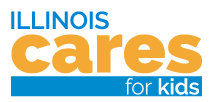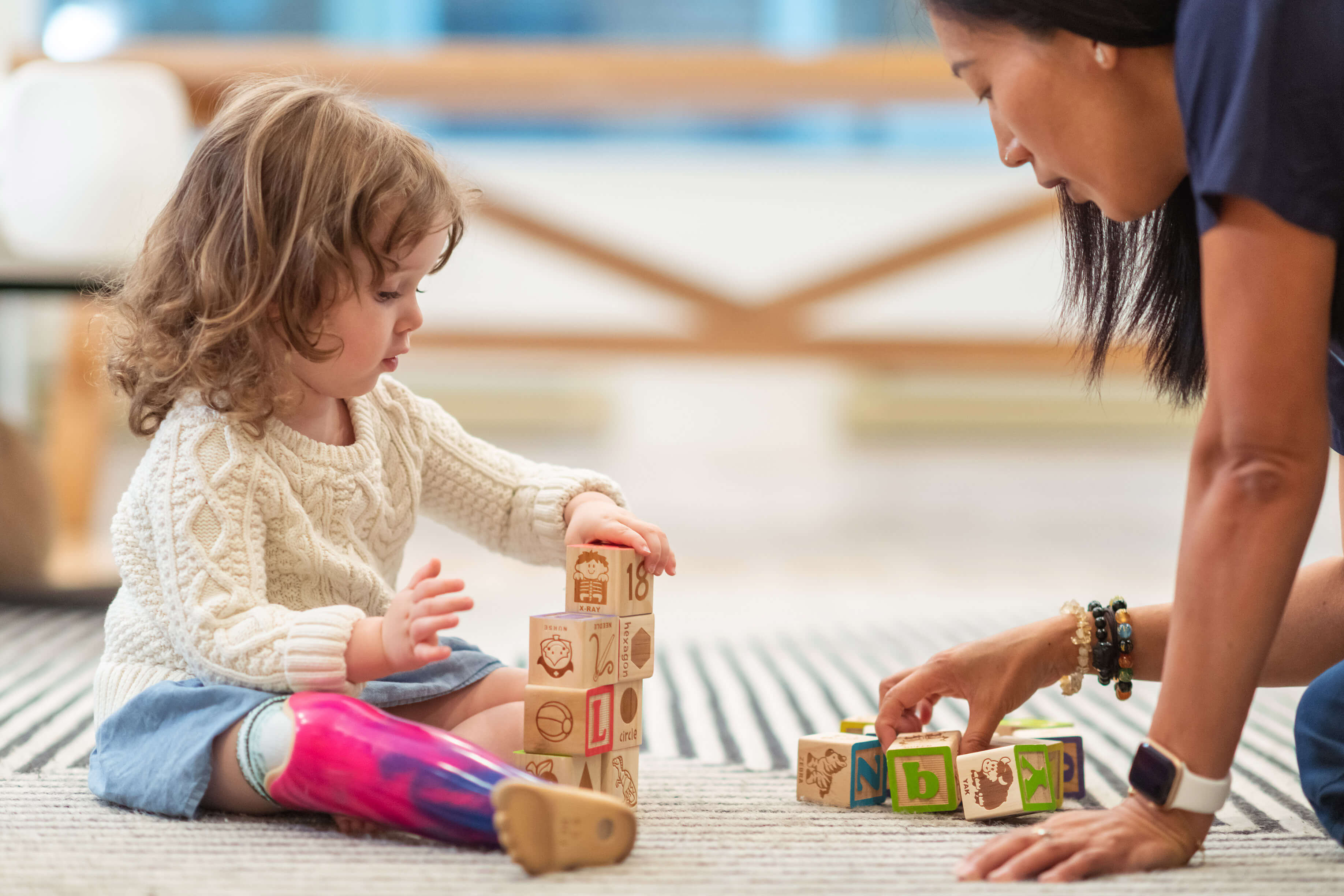Your child’s mental health is just as important as their physical well-being.
“Mental health” refers to how we feel about ourselves and others as well as how we deal with life. You – and all your child’s caregivers – have an important role to play in promoting good mental health. You help foster mental health by providing:
- A safe space to live and play
- Healthy types and amounts of food
- Love, care, and comfort
- Time for active play and engagement with other children
- Time to rest and relax
- Guidance and discipline that is firm but not harsh
These tips and more are available at www.illinoisearlylearning.org/tipsheets/mental-essential.
For more information visit the sites below:
- Illinois’s Approach to Building and Sustaining Infant and Early Childhood Mental Health Consultation
- Illinois Action Plan to Integrate Early Childhood Mental Health into Child- and Family-Serving Systems, Prenatal through Age Five
Illinois Infant/Early Childhood Mental Health Consultation
Pritzker Supports I/ECMHC Video
Other language versions of the video: Spanish, Polish, Chinese, Arabic, and Russian
Infant/Early Childhood Mental Health Consultation (I/ECMHC) Public Awareness Campaign
These print resources focus on providing key information as early childhood education and care programs about Infant/Early Childhood Mental Health Consultation.
- What is I/ECMHC? Audience - School Administrators - English and Spanish
- What is I/ECMHC? Audience - ECEC Program Leaders - English, Spanish, Polish, Chinese, Arabic, and Russian
- What is I/ECMHC? Audience - Parents - English, Spanish, Polish, Chinese, Arabic, and Russian
- What is I/ECMHC? Audience - Family Child Care - English, Spanish, Polish, Chinese, Arabic, and Russian
- What is I/ECMHC? Audience - Social-Emotional Consultants - English, Spanish, Polish, Chinese, Arabic, and Russian
- What is I/ECMHC? Audience - Home Visiting - English, Spanish, Polish, Chinese, Arabic, and Russian
- What is I/ECMHC? Audience - Child Care - English, Spanish, Polish, Chinese, Arabic, and Russian
- What is I/ECMHC? Audience - Head Start/EHS - English, Spanish, Polish, Chinese, Arabic, and Russian
- What is I/ECMHC? Audience - Activity Tracker - English and Spanish
- What is I/ECMHC? Audience - Infant Early Childhood Mental Health Consultants - English, Spanish, Polish, Chinese, Arabic, and Russian
- What is I/ECMHC? Audience - Early Childhood Professionals and Leaders - English, Spanish, Polish, Chinese, Arabic, and Russian
- Career-Infant Early Childhood Mental Health Consultation as a CAREER! Audience - ALL - English, Spanish, Polish, Chinese, Arabic, and Russian
- Diversity, Equity, Inclusion, Belonging Supports - Audience - Program Leaders - English and Spanish
- Diversity, Equity, Inclusion, Belonging Supports - Audience - I/ECMHC - English and Spanish
- Infant Early Childhood Mental Health REFERENCE SHEET WITH RESOURCES - Audience - Parents and Families - English, Spanish, Polish, Chinese, Arabic, and Russian
I/ECMH Consultant Search
Infant/Early Childhood Mental Health Consultants work in partnership with early childhood education and care (ECEC) providers to support the staff and adults who care for and educate young children. Use the I/ECMHC database to locate a qualified consultant near you.
Brief History of Infant/Ealy Childhood Mental Health in Illinois
Infant/Early Childhood Mental Health (I/ECMH) has been rooted in Illinois since the early 2000s. In 2003, the Illinois Children's Mental Health Partnership was created to convene advocates and child-serving institutions. In 2014, the Irving B. Harris Foundation convened stakeholders, practitioners, and thought leaders to develop the Illinois Action Plan to integrate I/ECMH into child-serving systems. In 2015, the Infant/Early Childhood Mental Health Consultation (I/ECMHC) Initiative was created to plan and guide the Pilot Evaluation. In 2018, Chapin Hall began evaluating the Illinois Model; for the initial review of the Pilot Evaluation, click here. In 2020, the I/ECMHC Initiative transitioned to the Governor's Office of Early Childhood Development (GOECD) who will convene the State's I/ECMHC Leadership Team. The lessons learned from the final Pilot Evaluation Report will shape how the State invests in I/ECMHC across early childhood education and care and support the development of a robust I/ECMHC workforce.
What is Infant/Early Childhood Mental Health Consultation?
Early childhood education and care providers play a critical role in cultivating the social/emotional development of very young children, which is foundational and has a lifelong impact. Children and families connect with early childhood programs in different ways because each family's needs are unique. Infant/Early Childhood Mental Health Consultants (I/ECMHC) enhance the early childhood workforce's response to the evolving developmental needs of children.
Consultants partner with early childhood programs to build capacity in strengthening responsive learning and nurturing environments that include home, classroom, and other program settings. Consultation is primarily an indirect service that boosts the work of those directly involved in the support and education of very young children and their families. Consultants work along the promotion, prevention, and intervention continuum with activities across the spectrum.
Programs are encouraged to connect with their Consultant when they observe a pattern of experiences that need to be interrupted or promoted with early childhood staff or across early learning settings. Children learn and heal within the context of relationships, and consultation work aims to include all the important adults in the child's life. Reflective consultation and job-embedded professional development are essential to growing the early childhood workforce in response to new experiences. The Consultant may go beyond the available setting and engage with staff and families in identifying strategies when a child is experiencing social/emotional dysregulation and requires more intervention. This plan may involve problem solving with all invested parties, identifying resources, or making a referral to a community-based therapeutic intervention to provide ongoing/long-term support to the child and family.
Research
In 2020, Chapin Hall completed a multi-year Infant/Early Childhood Mental Health Consultation (I/ECMHC) Pilot Evaluation across home visiting and center-based early childhood education and care programs in the Chicagoland area and Peoria.
Chapin Hall researchers evaluated a 15-month Illinois Department of Public Health (IDPH) pilot of the Illinois Model of I/ECMHC, led by the Illinois Children's Mental Health Partnership (ICMHP), in four public health departments. The pilot promotes children’s mental health by improving early childhood professionals’ skills and knowledge. Staff improved their reflective practice skills and their knowledge of strategies related to child social/emotional development. The increase in reflective supervision and reflective capacity predicted a decrease in emotional exhaustion.
Another evaluation conducted by the Illinois Children's Mental Health Partnership details the benefits of utilizing Infant/Early Childhood Mental Health Consultation in Maternal, Infant, and Early Childhood Home Visiting (MIECHV) programs.
Three Types of I/ECMHC Delivery Video
Ongoing Activities between Infant/Early Childhood Mental Health Consultants and Programs
- Reflective Consultation (relationship-based and a strengthens-based orientation)
- Observation, screening, assessment, and strategizing
- Providing professional development opportunities
- Co-facilitation of groups
- Direct meetings with families
Benefit of Consultation
- Supports nurturing parent-child relationships
- Supports the development of the child's social/emotional skills
- Reduces preschool expulsions and suspensions
- Supports the individuals who work closely with very young children
- Assists in collaboratively problem-solving issues that interfere with successful early childhood growth and development across settings
- Supports the quality of the workforce by increasing retention rates of early childhood professionals
- Reduces burn-out and compassion fatigue, thereby increasing job retention
- Enhances the reflective capacity of direct service providers and administrators
Learn more about the Illinois Model of Infant/Early Childhood Mental Health Consultation.
The Illinois Model of I/ECMHC Video
Key I/ECMHC Resources
- Early Intervention: Social-Emotional Consultants Directory
- Chapin Hall: Evaluation of the Illinois Model of Infant and Early Childhood Mental Health Consultation Pilot
- GOECD Briefing: Infant/Early Childhood Mental Health Consultation (6/2/21)
- GOECD, I/ECMHC Leadership Team & INCCRRA: Frequently Asked Questions - Illinois Infant/Early Childhood Mental Health Consultation
- GOECD, I/ECMHC Leadership Team & INCCRRA: Programs Funding Considerations for Infant/Early Childhood Mental Health Consultation in Illinois
- GOECD: Mental Health Consultation - Connecting Early Childhood Learning Renewal Efforts in Your School District
- National Center for Children in Poverty (NCCP)/Promoting Research-informed State IECMH Policies and Scaled Initiatives (PRiSM): Illinois State Profile


